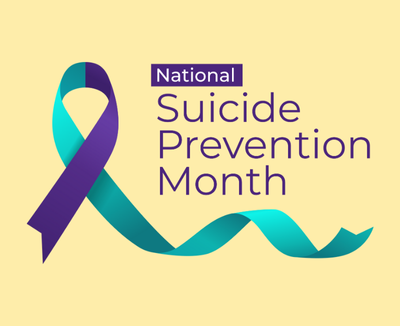
September Is Suicide Prevention Month
As we observe National Suicide Prevention Month and World Suicide Prevention Day on September 10, we recognize the critical need to address the challenges of suicidal ideation among our youth. The impact of this issue extends throughout our community, affecting us all.
At Visions In Education, we want you to know that counselors and social workers are here to support students and families as needed. Additional resources and support can also be found on our Mental Health and Wellness Page located on The Wire.
Recognizing the Warning Signs
The first step toward intervention and support is awareness. Warning signs of suicide can include:
- Behavioral: Withdrawing from friends and activities, giving away personal belongings, self-destructive behaviors, increased substance use, sudden mood improvement after depression.
- Verbal: Expressing hopelessness, worthlessness, or feeling like a burden; talking about death, dying, or wanting to die; making statements such as “I can’t take it anymore” or “I wish I weren’t here.”
- Emotional: Sudden mood swings, overwhelming sadness or despair, emptiness, loss of interest in activities once enjoyed, intense irritability or anger.
- Situational: Recent loss of a loved one, breakup, bullying or harassment, major life changes, academic or work-related stress, financial struggles, or other crises.
- Physical: Changes in sleep patterns, appetite, weight, or personal hygiene.
- Social: Withdrawal from relationships, increasing isolation, disconnection from friends, family, or community.
- Cognitive: Difficulty concentrating, preoccupation with death, intense guilt or shame.
How You Can Help
If you notice these signs:
- Initiate a compassionate conversation.
- Listen without judgment.
- Encourage professional support through therapists, counselors, and helplines.
- Involve trusted adults—parents/guardians, teachers, coaches, or mentors.
- Collaborate on a safety plan.
Resources
If you or someone you know is experiencing hopelessness or suicidal thoughts, please reach out for help:
- 988 Suicide and Crisis Lifeline – Available 24/7 nationwide. Call or text 988 for free, confidential crisis support.
- NAMI (National Alliance on Mental Illness) – Support groups and resources nationwide. Visit NAMI.
- Care Solace – A complimentary, confidential service provided by Visions In Education to help you find mental health or substance use providers. Call 888-515-0595 (multilingual support available 24/7).